People
People List
-
 David Gordon
David GordonSidney Kimmel Medical College, Thomas Jefferson University
Dr. Gordon is a recent graduate of Sidney Kimmel Medical College at Jefferson University where he earned his Doctor of Medicine degree. He is now beginning his emergency medicine residency at Yale University, where he has been admitted into the Yale Emergency Scholars (YES)program, a five-year track that merges emergency medicine residency with a rigorous research fellowship.
Dr. Gordon is also the co-founder of AltruMed, a start-up developing a wearable harm reduction device for respiratory suppressant overdose. With a unique background combining EMS, architecture, and industry experience into emergency medicine research, Dr. Gordon merges clinical research with design principles to address gaps in healthcare delivery. He is particularly interested in research that creates technology or processes to improve access to emergency care, patient experience, and emergency department design.
-
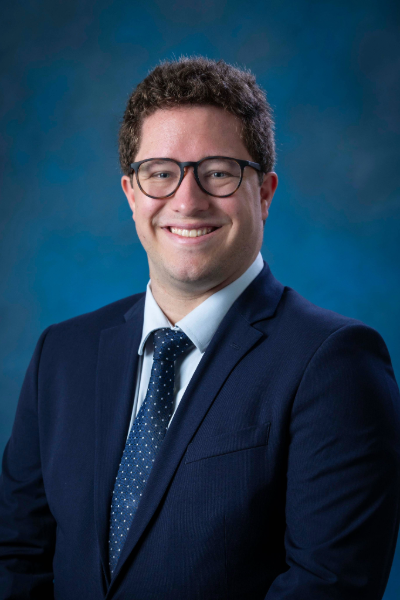 Konnor Davis
Konnor DavisUniversity of California, Irvine School of Medicine
Dr. Davis is a recent graduate of the University of California, Irvine, School of Medicine, where he earned his Doctor of Medicine degree. He is now beginning his emergency medicine residency at the University of California, Davis. Originally from Sacramento, California, Dr. Davis began his academic journey at community college before earning an undergraduate degree in biological sciences from UC Davis. While at UC Davis, he was a student leader in the Emergency Medicine Research Associates Program (EMRAP), contributing to clinical research in the emergency department. Before medical school, Dr. Davis worked as a clinical research coordinator, where he managed a federally funded clinical trial for children with autism and anxiety and contributed to the longest longitudinal autism research study to date.
At UC Irvine, Dr. Davis was deeply involved in emergency medicine as vice president of education, vice president of advising, and senior advisor for the Emergency Medicine Interest Group. In these roles, he organized procedure workshops, faculty interviews, monthly networking dinners, and other initiatives to strengthen the group’s impact.
-
 Wendy W. Sun, MD
Wendy W. Sun, MDYale University
Dr. Sun is assistant medical director of the York Street Campus Emergency Department at Yale-New Haven Health, an administration fellow, and an instructor of emergency medicine at Yale School of Medicine. Dr. Sun is passionate about clinical operations, patient quality and safety, physician well-being, and health innovation. She oversees operations at the York Street Campus Emergency Department, mentors residents, and is involved in education and advocacy for emergency medicine.
Dr. Sun earned her undergraduate degree in biomedical engineering from Columbia University. She obtained her Doctor of Medicine from Virginia Commonwealth University School of Medicine, where she was inducted into the Gold Humanism and Alpha Omega Alpha Honor Societies. She completed her emergency medicine residency at Yale-New Haven Health, where she served as chief resident. Dr. Sun is currently a candidate for the MBA for Executives program at the Yale School of Management.
-
 Amir J. Mansour, MD
Amir J. Mansour, MDYale University
Dr. Mansour is an instructor of emergency medicine at Yale School of Medicine and a simulation fellow at the Yale Center for Healthcare Simulation (YCHS). He earned his medical degree from Northeast Ohio Medical University and completed his emergency medicine residency at Wright State University.
At YCHS, Dr. Mansour focuses on developing high-fidelity simulation scenarios to enhance clinical decision-making, procedural skills, and interprofessional teamwork among healthcare providers. He has been instrumental in designing and implementing simulation curricula for medical students, residents, and interdisciplinary teams, covering a wide range of medical scenarios from critical emergencies to pediatric-specific cases. He has also led onboarding sessions for new residents, providing hands-on training in essential procedures such as central line placement.
-
 Richmond Malabanan Castillo, MD, MA, MS
Richmond Malabanan Castillo, MD, MA, MSDr. Castillo is a pediatric emergency medicine fellow at Children's National Hospital in Washington, D.C. He completed his emergency medicine residency at Northwestern University/McGaw Medical Center in 2023 and earned his medical degree from the Mayo Clinic Alix School of Medicine. Dr. Castillo also holds graduate degrees from Johns Hopkins University, having completed a Master of Science and a Master of Arts.
Dr. Castillo has a keen interest in medical education and has been actively involved in leadership roles, including serving as vice chair of the Pediatric Emergency Medicine Committee for the Emergency Medicine Residents' Association (EMRA).
-
 Priya Arumuganathan, MD
Priya Arumuganathan, MDUniversity of Pennsylvania
Dr. Arumuganathan is currently a Global Emergency Medicine Fellow at the University of Pennsylvania, where she is also an instructor of clinical emergency medicine. She completed her emergency medicine residency at West Virginia University (WVU), where she served as chief resident. Dr. Arumuganathan earned her undergraduate degree from Shepherd University in Shepherdstown, West Virginia, and her medical degree from WVU. She is currently pursuing a Master of Public Health (MPH) degree.
During her residency, Dr. Arumuganathan was heavily involved in teaching core emergency medicine content, ultrasound skills, and procedural basics to medical students and new residents. Her rural background and training at several critical access hospitals provided her with a solid foundation for working in low-resource environments, skills she has applied to her global health work.
-
 Sarah Aly, DO
Sarah Aly, DOYale University
Dr. Aly is a second-year Global and International Emergency Medicine fellow at Yale University and an instructor of emergency medicine at Yale School of Medicine. She is also pursuing a Master of Science in Public Health at the London School of Hygiene & Tropical Medicine.
Dr. Aly's commitment to the Southwest Asia and North African region began during her undergraduate studies at New York University, where she earned a degree in Middle Eastern Studies. She obtained her medical degree from Touro College of Osteopathic Medicine in Harlem, New York, and completed her emergency medicine residency at St. Joseph’s University Medical Center. During her residency, she founded and chaired the Equity, Diversity, and Inclusion Committee, fostering a partnership with Black Lives Matter Paterson to conduct community health initiatives such as blood pressure and glucose screenings, grocery distributions, and "Stop the Bleed" trainings.
-
 Christopher E. San Miguel, MD, MEd
Christopher E. San Miguel, MD, MEdThe Ohio State University
Dr. San Miguel is an associate professor in the Department of Emergency Medicine at The Ohio State University Wexner Medical Center in Columbus, Ohio. He also serves as the director of undergraduate medical education, overseeing the education and mentorship of medical students, and leads initiatives such as integrating virtual reality simulation into core rotations, developing gamified learning modules, and creating a mastery-based curriculum for emergency medicine residents and students.
Dr. San Miguel earned his medical degree from the University of North Carolina School of Medicine and completed his emergency medicine residency at The Ohio State University Wexner Medical Center. He also completed a fellowship in medical education at Ohio State.
-
 Mary R. C. Haas, MD, MHPE
Mary R. C. Haas, MD, MHPEUniversity of Michigan
Dr. Haas is a clinical assistant professor in the Department of Emergency Medicine at the University of Michigan. She serves as the director of the Emergency Medicine Medical Education Fellowship, co-director of the Medical School Leadership Development Program, and assistant director of clinical faculty development for the department.
Dr. Haas earned her medical degree from Loyola University Stritch School of Medicine and completed her emergency medicine residency at the University of Michigan, where she also served as chief resident. In addition to her clinical training, Dr. Haas completed a medical education fellowship at the University of Michigan, earning a Master of Health Professions Education (MHPE). She served as assistant residency director for the emergency medicine residency program for five years.
-
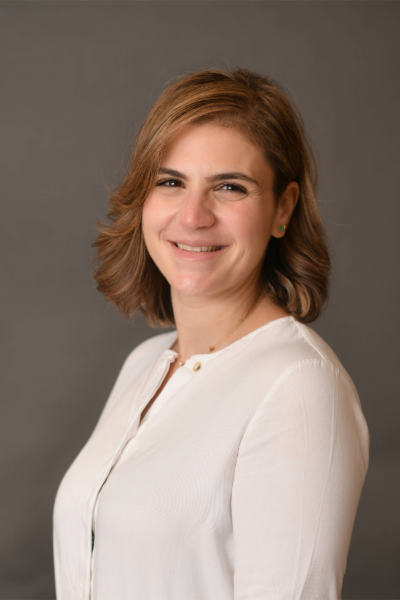 Nour Al Jalbout, MD
Nour Al Jalbout, MDMassachusetts General Hospital
Dr. Al Jalbout is an assistant professor of emergency medicine at Harvard Medical School and an attending physician in the Department of Emergency Medicine at Massachusetts General Hospital (MGH) in Boston.
Dr. Al Jalbout completed her undergraduate studies and earned her medical degree from the American University of Beirut, Lebanon, graduating with distinction. She completed her residency in emergency medicine at The Johns Hopkins Hospital, where she served as chief resident specializing in evidence-based medical education.
-
 Felipe Teran, MD, MSCE
Felipe Teran, MD, MSCEWeill Cornell Medicine
Dr. Teran is an assistant professor of emergency medicine at Weill Cornell Medicine in New York City, where he leads the Laboratory of Translational Resuscitation Science in the Division of Emergency Research and serves as co-chair for the Cardiac Arrest Committee.
Dr. Teran earned his medical degree and completed his emergency medicine residency, followed by a fellowship in point-of-care ultrasound at Mount Sinai Hospital. He also holds a Master of Science in Clinical Epidemiology from the University of Pennsylvania and is a testamur of the National Board of Echocardiography Critical Care Echocardiography Examination.
-
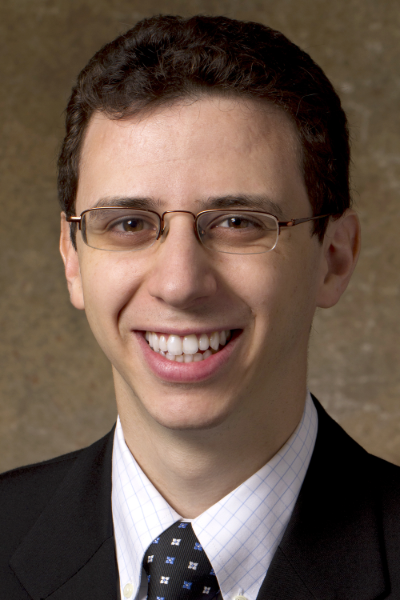 Ari B. Friedman, MD, PhD
Ari B. Friedman, MD, PhDUniversity of Pennsylvania
Dr. Friedman is a health economist and practicing emergency physician at the University of Pennsylvania. He serves as an assistant professor of emergency medicine and medical ethics and health policy at Penn and is a senior fellow at the Leonard Davis Institute of Health Economics. He is also core faculty at the Center for Emergency Care Policy and Research.
Dr. Friedman earned his Doctor of Medicine (M.D.) from the Perelman School of Medicine at the University of Pennsylvania and his Doctor of Philosophy (Ph.D.) in health care management and economics from the Wharton School of the University of Pennsylvania. He then completed his residency in emergency medicine at Beth Israel Deaconess Medical Center, a Harvard-affiliated program.
-
 Ryan A. Coute, DO
Ryan A. Coute, DOUniversity of Alabama at Birmingham
Dr. Coute is a physician-scientist and assistant professor of emergency medicine at the University of Alabama at Birmingham (UAB). His research focuses on resuscitation science, with an emphasis on improving the treatment of sudden cardiac arrest through community-based clinical interventions.
Dr. Coute earned his Doctor of Osteopathic Medicine from Kansas City University and completed his emergency medicine residency at UAB. His research training includes the prestigious Sarnoff Cardiovascular Research Fellowship, which he completed under the mentorship of Robert W. Neumar, MD, PhD, at the University of Michigan.
-
 Manpreet Singh, MD, MBE
Manpreet Singh, MD, MBEHarbor-UCLA Medical Center
Dr. Singh is a highly accomplished emergency medicine physician and educator, serving as the assistant director of emergency ultrasound and director of undergraduate medical education at Harbor-UCLA Medical Center. He is also a faculty member at both the David Geffen School of Medicine at UCLA and Charles R. Drew University.
Dr. Singh earned his medical degree from the David Geffen School of Medicine at UCLA and completed his residency in emergency medicine at Harbor-UCLA, where he served as academic chief resident. He further specialized through fellowships in emergency ultrasound and faculty development in medical education. His professional focus includes point-of-care ultrasound, medical education, and leveraging digital scholarship to advance emergency medicine practice.
-
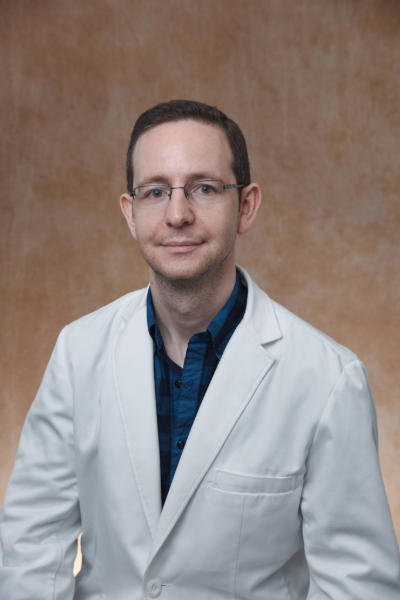 Alex Koyfman, MD
Alex Koyfman, MDUT Southwestern Medical Center / Parkland Health and Hospital System
Dr. Koyfman is a board-certified emergency medicine physician and assistant professor at the University of Texas Southwestern Medical Center. He also serves as an attending physician at Parkland Memorial Hospital in Dallas, Texas.
Dr. Koyfman has authored over 280 peer-reviewed publications across diverse areas within emergency medicine. His primary interests include resident and faculty education and development, emergency medicine decision-making and mindset, emergency department critical care, high-risk/low-prevalence diseases, and medical entrepreneurship. He currently serves as editor-in-chief of emDocs.net and co-writes a monthly column for Emergency Physicians Monthly.
-
 Tony Rosen, MD, MPH
Tony Rosen, MD, MPHWeill Cornell Medicine / NewYork-Presbyterian Hospital
Dr. Rosen is an associate professor of emergency medicine at Weill Cornell Medicine, associate director of research in the Department of Emergency Medicine, and a practicing emergency physician at NewYork-Presbyterian Hospital. A health services researcher specializing in elder abuse and geriatric emergency care, Dr. Rosen focuses on improving the identification, intervention, and prevention of elder mistreatment in emergency departments and other health care settings.
Dr. Rosen has led research on forensic injury patterns in physical elder mistreatment and health care utilization among elder abuse victims. A leader in the field, Dr. Rosen spearheaded the development of the first-of-its-kind Emergency Department-based Vulnerable Elder Protection Team (VEPT), a multidisciplinary initiative that assesses, treats, and ensures the safety of elder abuse and neglect victims while collecting evidence and collaborating with law enforcement and Adult Protective Services. In their patient-oriented clinical research lab, Dr. Rosen is currently examining health care utilization among elder abuse victims using Medicare claims data and machine learning techniques. Additionally, their work includes developing a novel screening tool and intervention approach for elder neglect in older adults with dementia.
-
 Todd Florin, MD, MSCE
Todd Florin, MD, MSCEAnn & Robert H. Lurie Children's Hospital of Chicago
Dr. Florin is an associate professor of pediatrics in the Division of Pediatric Emergency Medicine at Ann & Robert H. Lurie Children’s Hospital of Chicago and Northwestern University Feinberg School of Medicine. He serves as associate division head for academic affairs and research in the Division of Pediatric Emergency Medicine at Lurie.
An internationally recognized expert in respiratory infectious diseases in emergency care settings, Dr. Florin leads multiple large-scale research initiatives aimed at improving the diagnosis, management, and outcomes of children with serious infections, particularly lower respiratory tract infections.
-
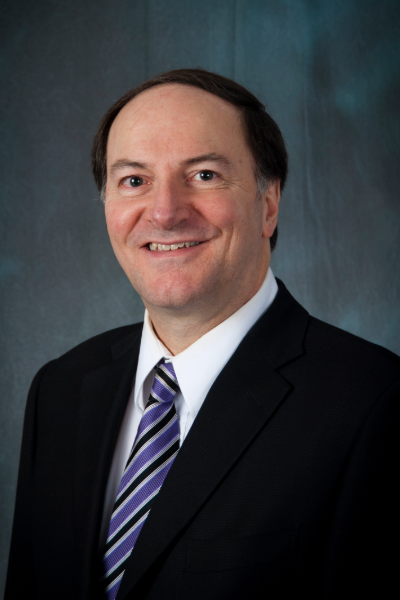 Nicholas Jouriles, MD
Nicholas Jouriles, MDNortheast Ohio Emergency Medicine; US Acute Care Solutions; Summa Health System
Dr. Jouriles serves as the professor and chair of emergency medicine at Northeast Ohio Medical University (NEOMED) and as the vice chair of faculty development in the Department of Emergency Medicine at Summa Health.
Dr. Jouriles earned his medical degree from Case Western Reserve University School of Medicine. He completed his residency training in internal medicine at Dartmouth and further specialized in emergency medicine at the University of Colorado's Denver Affiliated Hospitals.
-
 Junaid A. Razzak, MBBS, PhD
Junaid A. Razzak, MBBS, PhDWeill Cornell Medicine
Dr. Junaid A. Razzak, MBBS, Ph.D., is a professor of emergency medicine and population health sciences at Weill Cornell Medicine, where he also serves as the vice chair of research for the Department of Emergency Medicine. He earned his medical degree from Aga Khan University Medical College in Pakistan, completed his emergency medicine residency at Yale University, and obtained a Ph.D. in public health from the Karolinska Institute in Sweden.
Dr. Razzak is internationally recognized for his contributions to emergency care, particularly in low- and middle-income countries. As the founding chair of emergency medicine at Aga Khan University in Karachi, Pakistan, he established the country's first academic department in this field and directed its inaugural residency program. He also founded the emergency medical services for Karachi, a city with over 20 million residents.
-
 Theresa Hsiang-Ting Cheng, MD, JD
Theresa Hsiang-Ting Cheng, MD, JDUniversity of California, San Francisco (UCSF) Department of Emergency Medicine - Zuckerberg San Francisco General Hospital
Dr. Cheng is an assistant clinical professor of emergency medicine and associate co-director of social emergency medicine at the University of California, San Francisco (UCSF). She earned her medical degree from the Mayo Clinic and a Juris Doctor specializing in international law from the University of California, Berkeley School of Law.
Dr. Cheng focuses on integrating social equity into emergency care through a human rights and international law perspective. She co-authored a chapter on homelessness in the textbook "Social Injustice and Public Health" (4th edition). Her previous work includes collaborating with the United Nations Development Programme on issues of medical neglect and coercion of HIV-positive individuals in Southeast Asia, as well as partnering with the American Civil Liberties Union to investigate reproductive health violations of migrants in detention centers.
People List - Grid
-
 David Gordon
David GordonSidney Kimmel Medical College, Thomas Jefferson University
-
 Konnor Davis
Konnor DavisUniversity of California, Irvine School of Medicine
-
 Wendy W. Sun, MD
Wendy W. Sun, MDYale University
-
 Amir J. Mansour, MD
Amir J. Mansour, MDYale University
-

-
 Priya Arumuganathan, MD
Priya Arumuganathan, MDUniversity of Pennsylvania
-
 Sarah Aly, DO
Sarah Aly, DOYale University
-
 Christopher E. San Miguel, MD, MEd
Christopher E. San Miguel, MD, MEdThe Ohio State University
-
 Mary R. C. Haas, MD, MHPE
Mary R. C. Haas, MD, MHPEUniversity of Michigan
-
 Nour Al Jalbout, MD
Nour Al Jalbout, MDMassachusetts General Hospital
-
 Felipe Teran, MD, MSCE
Felipe Teran, MD, MSCEWeill Cornell Medicine
-
 Ari B. Friedman, MD, PhD
Ari B. Friedman, MD, PhDUniversity of Pennsylvania
-
 Ryan A. Coute, DO
Ryan A. Coute, DOUniversity of Alabama at Birmingham
-
 Manpreet Singh, MD, MBE
Manpreet Singh, MD, MBEHarbor-UCLA Medical Center
-
 Alex Koyfman, MD
Alex Koyfman, MDUT Southwestern Medical Center / Parkland Health and Hospital System
-
 Tony Rosen, MD, MPH
Tony Rosen, MD, MPHWeill Cornell Medicine / NewYork-Presbyterian Hospital
-
 Todd Florin, MD, MSCE
Todd Florin, MD, MSCEAnn & Robert H. Lurie Children's Hospital of Chicago
-
 Nicholas Jouriles, MD
Nicholas Jouriles, MDNortheast Ohio Emergency Medicine; US Acute Care Solutions; Summa Health System
-
 Junaid A. Razzak, MBBS, PhD
Junaid A. Razzak, MBBS, PhDWeill Cornell Medicine
-
 Theresa Hsiang-Ting Cheng, MD, JD
Theresa Hsiang-Ting Cheng, MD, JDUniversity of California, San Francisco (UCSF) Department of Emergency Medicine - Zuckerberg San Francisco General Hospital
